Nature reports
File: Birdmigration
Page 2 of 3 - 27 Results
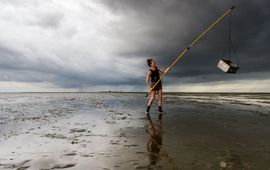
Contrary to the population trends for many shorebirds, sanderlings have been doing relatively well in the Wadden Sea for the past years. The key to that success lies in the timing of these little birds' main food: shrimp on the..
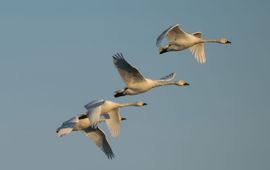
Bewick’s swans fly less far during their autumn migration when the weather is warm. Climate change has therefore led to a shift in their common wintering areas. Now, for the first time, bird researchers have been able to pinpoint..
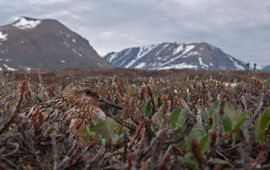
Sanderlings are having an increasingly difficult time on their breeding grounds in Greenland. This is not always because climate change is causing spring to start earlier and earlier there – as is often assumed – but rather..
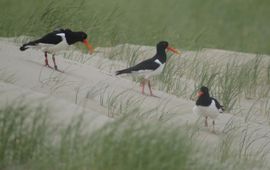
Tens of thousands of animals around the world are monitored using GPS trackers to protect wildlife and study animal behaviour. The collected data are also useful for biodiversity research, but are seldom available on platforms..
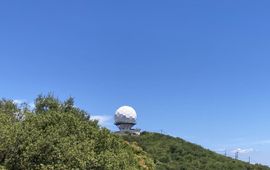
Researchers at the University of Amsterdam have developed a model that can accurately predict the current migration routes of migratory birds. This offers the possibility of taking adequate measures at the right time when birds..
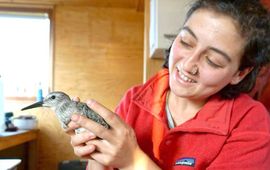
The Wadden Sea is changing due to human influences such as mining for gas, tourism and sea level rise. Researcher Selin Ersoy, ecologist at the Royal Netherlands Institute for Sea Research (NIOZ) studied how ‘personalities’ of..
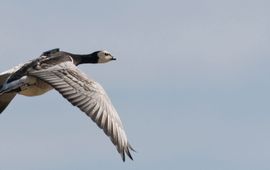
As Arctic temperatures continue to rise, barnacle geese are increasingly at risk of arriving in their breeding areas too late. The good news is that they can speed up their 3,000 kilometre migration to the Arctic, by making fewer..
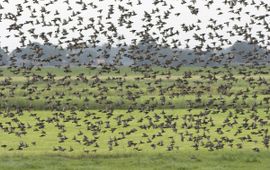
Many fish species swim in schools and birds fly in flocks. Such collective behaviour must arise from the interactions between the animals. How it works was largely unclear. Wageningen-researchers now provide insight into the..
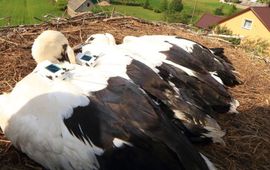
Scientists can predict which storks will migrate to Africa in autumn and which will remain in Europe...
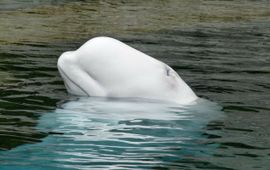
It might seem like a 'whale of tale', but groundbreaking research from Florida Atlantic University’s Harbor Branch Oceanographic Institute is the first to demonstrate that just like human societies, beluga whales appear to value..
